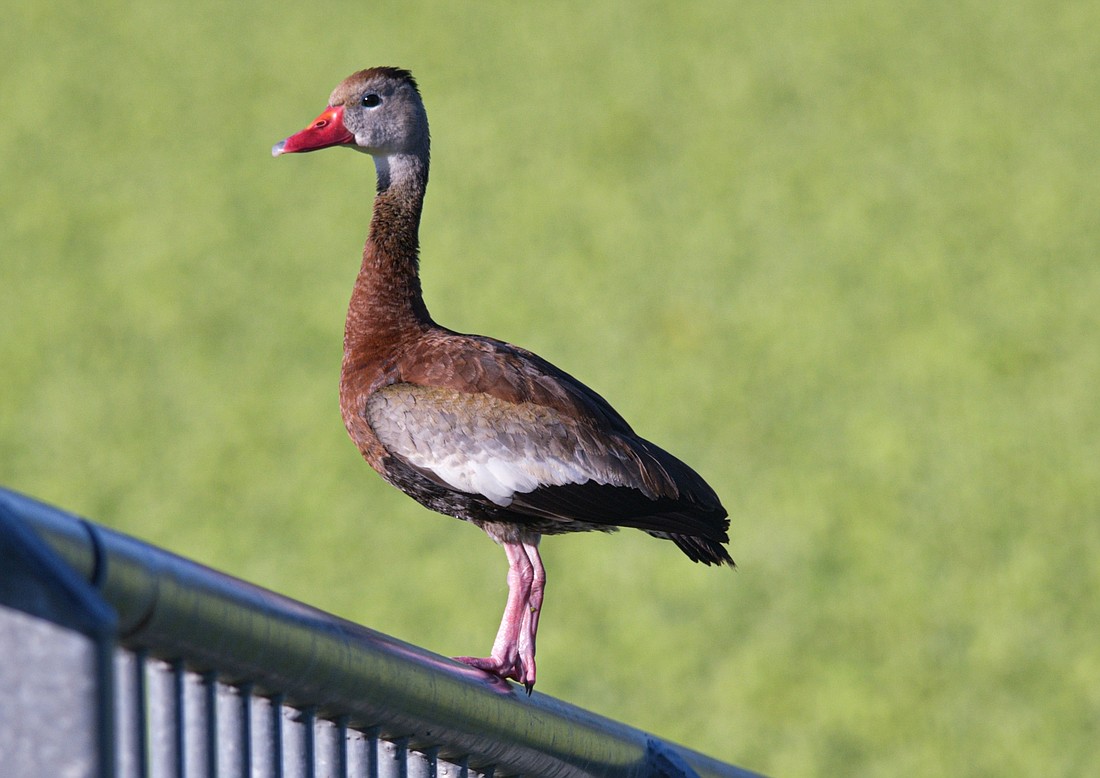- April 18, 2024
-
-
Loading

Loading

With their red bills, pink feet, and black bellies, black-bellied whistling ducks are quite easy to identify. They are equally recognizable by sound: Their call is a distinct high-pitched whistle, often compared to the sound of a squeeze toy. Gregarious, whistlers form large, chatty flocks. As their name suggests, these are not quiet birds.
Whistlers are fairly recent colonizers in the United States that originate in Central America and South America. Unlike some non-native species, which were introduced accidentally or intentionally by humans, these birds are here on their own volition. They expanded their range north into Florida, Texas, and parts of Louisiana, likely because of agricultural development's effects on desirable foraging grounds.
Interestingly, the first report of this species in Florida occurred in Sarasota County, when six birds were spotted in the summer of 1943. In 1981, a flock of 11 birds wintered in Sarasota County, and half remained through the summer of 1982. The year-round flock grew larger year by year, and they are now considered a native species.
Unlike many other duck species, whistlers mate for life, with both genders cooperatively rearing and protecting the young, a trait more typical of swans and geese than ducks. While they prefer to nest in natural tree cavities, they will readily use nest boxes. A day or two after hatching, their checkerboard-patterned yellow and black ducklings climb out of the nesting cavity, and jump to the ground.
As they do well in human-adapted habitats, whistlers are growing in numbers and expanding their range. As with all wetland birds, though, they are threatened by loss of habitat and poor water quality.
Save our Seabirds is a non-profit organization whose mission is to rescue and rehabilitate sick and injured birds, releasing as many as they can, while educating our community about avoiding injuries and preserving habitats.